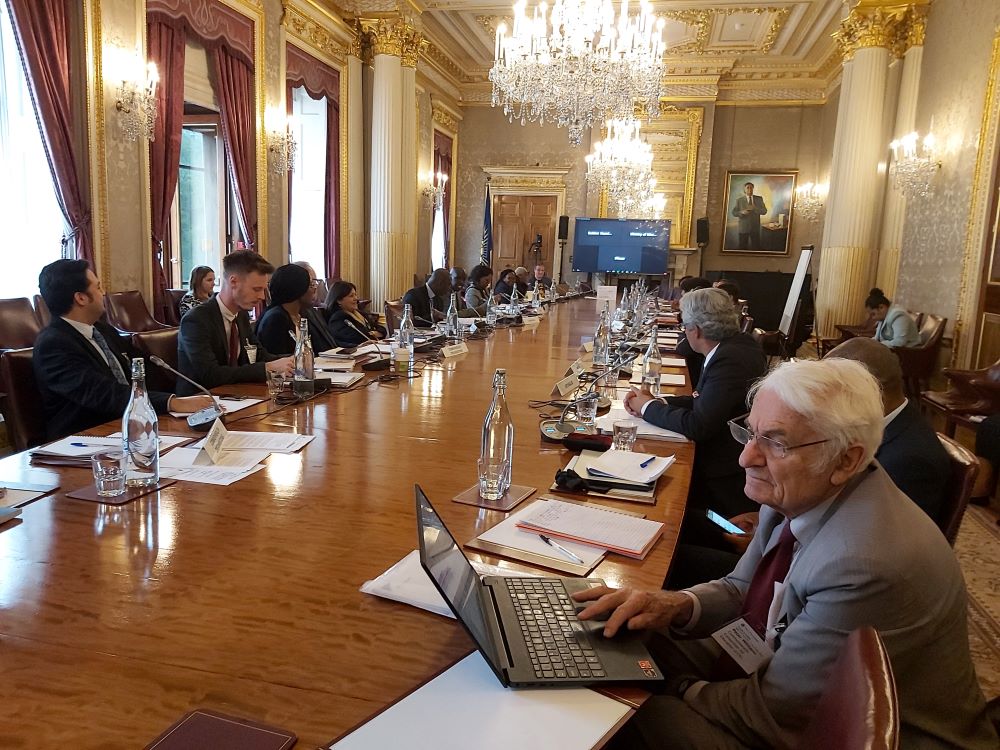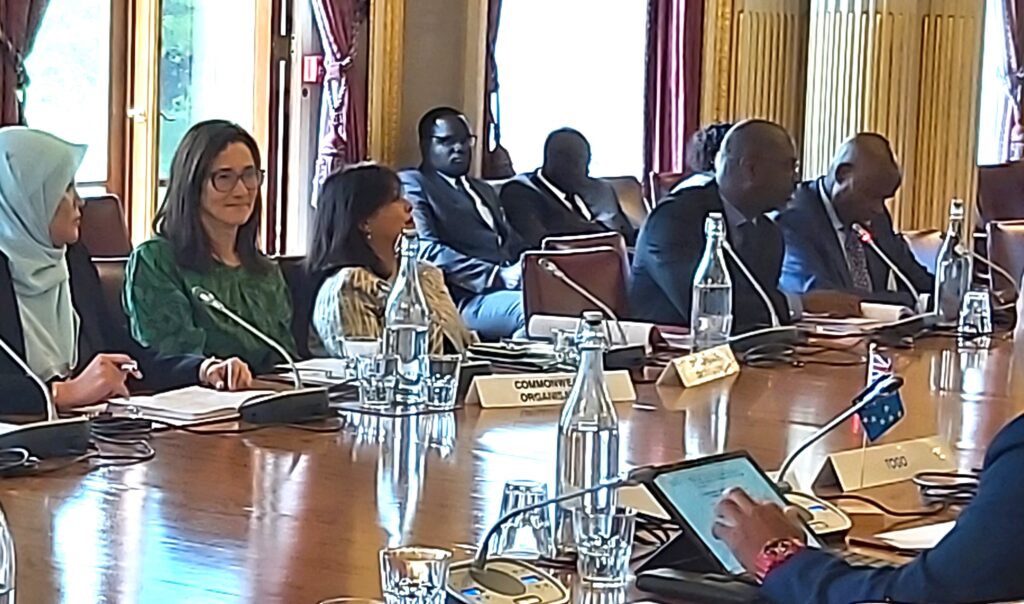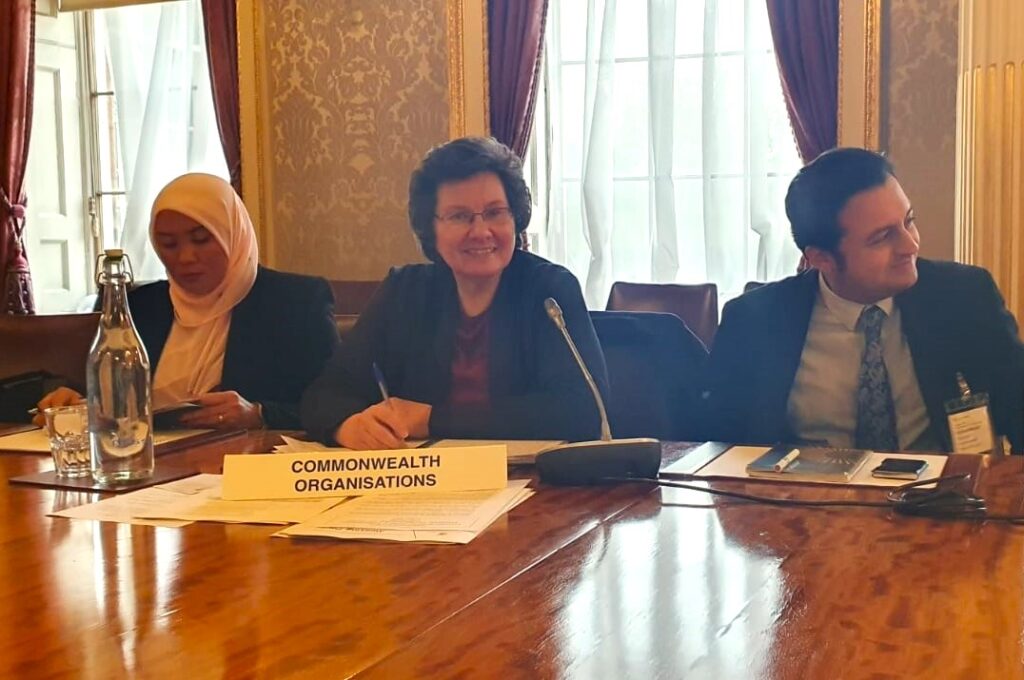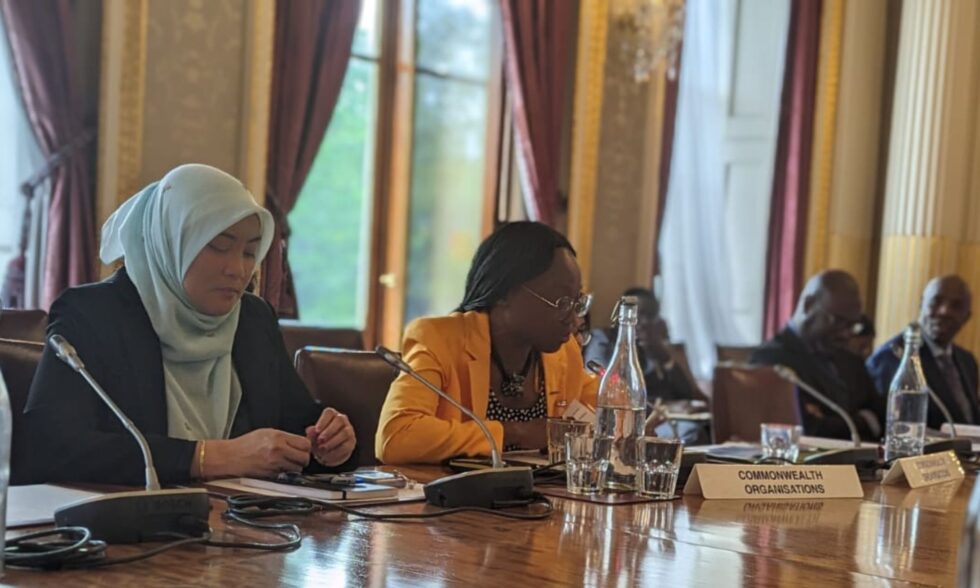Ministerial action transforming education in the Commonwealth is being spearheaded by the Commonwealth Education Ministers Action Group – CEMAG. This is driving Commonwealth collective action on tackling the learning crisis to meet Sustainable Development Goal 4.
On 11th-12th May 2023, education ministers, senior officials and other stakeholders met at Marlborough House (Commonwealth Secretariat) in London. The meeting comprised the Commonwealth Education Ministerial Action Group (CEMAG) and the Commonwealth Accelerated Development Mechanism for Education (CADME). 14 member countries have joined the CEMAG, representing all regions of the Commonwealth.
The aim of these mechanisms is to help drive delivery of the Sustainable Development Goals (SDGs) for education in Commonwealth countries and to ensure that there is progress towards identified goals. These meetings provide strategic direction, advice and oversight of agreed action on policy development and implementation following each triennial Conference of Commonwealth Education Ministers (CCEM). They also help prepare for the next CCEM meeting.
This two day gathering was the first in-person meeting since the 21st CCEM, hosted by Kenya in April 2022. The purpose was to chart the way forward for education in the Commonwealth’s 56 member countries. Hon Ezekiel Machogu, chair of the CEMAG, described the meetings as very timely:
“Many of us are still grappling with back-to-school measures and navigating the challenges posed by the pandemic in our ministries and institutions. Therefore, this is an invaluable opportunity to focus on our commitments to financing education, explore emerging opportunities such as artificial intelligence (AI) in education and share effective strategies and resources.”
The Consortium was represented by Helen Jones (Management Committee/Communications Secretary) and Peter Williams (Honorary President). Representatives of Consortium-Members ACU (Association of Commonwealth Universities), CTG (Commonwealth Teachers Group) and CBWN (Commonwealth Businesswomen’s Network) were also present.
Context of the 21st CCEM Kenya
At the 21st CCEM in Nairobi education ministers and stakeholders met under the theme ‘Rethinking Education for Innovation, Growth and Sustainability post-Covid-19′.
Ministers recognised that the COVID-19 pandemic had exacerbated the global learning crisis, with many learners losing access to their classrooms. Recovery from the pandemic and transition back to regular schooling were proving slow, and there was a desperate need to catch up.
The 21CCEM Ministerial Statement issued by Ministers recognises the urgent need to increase investment in education and skills at all ages, and with a particular focus on ensuring foundational skills for all.
This provided some of the agenda for the CEMAG and CADME meetings.
UN Transforming Education Summit
The Transforming Education Summit (TES), held in New York in September 2022, provided additional context to the CEMAG. This was convened by the UN Secretary-General in response to the deep crisis in education globally, exacerbated by pandemic-related learning losses and educational disruptions.
Education faces a crisis of equity, quality, and relevance which threatens to have a devastating impact on the futures of children and youth worldwide.
The TES Summit provided a unique opportunity to elevate education to the top of the global political agenda. It aimed to mobilise action, ambition, solidarity and solutions to recover from the pandemic and to reimagine education systems for the world of today and tomorrow.
Outcomes from the Transforming Education Summit can be read here. A CCfE Briefing Note on the Summit can be read here.
The Commonwealth Response
The outcomes of the Transforming Education Summit in turn challenge the Commonwealth to arrive at a strong shared vision and agenda for ministerial action on transforming education and achieving Sustainable Development Goal 4 by 2030.
To achieve significant progress in realising the right to a quality education for young people, more collaboration and coordination towards that vision is needed. The Commonwealth needs a clear focus not only on what it aspires to do, but also on what is achievable.
Ministers meeting at the CEMAG were very aware that the deadline for the UN Sustainable Development Goals is less than 7 years away (the meeting marked 2,488 days until that 2030 deadline). They were in agreement that collective Commonwealth effort and increased collaboration can help transform education and speed up national and global efforts to achieve SDG-4.
Moving from commitment to action
During the course of the 2-day meeting, ministers and senior officials focused their attention on how international collaboration can help countries move from the commitments made at the Transforming Education Summit to action. Throughout the meeting they considered:
- What concrete options are there for Commonwealth countries to collaborate to accelerate progress towards the education Sustainable Development Goals?
- Do the shared issues that groups of Commonwealth countries face have shared solutions?
- What are the shared approaches that can accelerate learning?
The themes and agendas of the CEMAG and the CADME Technical Working Group Meeting aimed to identify some of the answers.
Call for more regular ministerial meetings to drive action
There was a very noticeable sense of needing and wanting to galvanise and speed up national action by increased Commonwealth collaboration through sharing and learning. Indeed, in reviewing the sequencing of Commonwealth education meetings, ministers felt they now needed to be meeting more frequently than triennially. They also recognised the imperative to mobilise the Commonwealth’s political agenda for education and influence leaders.
Therefore they recommended that the Commonwealth education cycle should fit better with the biennial cycle of Commonwealth Heads of Government Meetings (CHOGMs) and the strategic planning cycle of the Commonwealth Secretariat.
And with just seven years to go until 2030, and given the urgency of the action required, they asked for consideration to be given to annual meetings of Education Ministers.
CEMAG Meeting
 On the first day (Thursday 11th May), education ministers met for the Commonwealth Education Ministerial Action Group (CEMAG) which was chaired by Hon. Ezekiel Machogu, the Cabinet Secretary of Education of Kenya.
On the first day (Thursday 11th May), education ministers met for the Commonwealth Education Ministerial Action Group (CEMAG) which was chaired by Hon. Ezekiel Machogu, the Cabinet Secretary of Education of Kenya.
An opening address by the Secretary General of the Commonwealth, The Rt Hon Patricia Scotland KC, focused on overcoming the digital learning gap, as exposed during the pandemic.
Ministers had the opportunity to share progress updates for their country and region in line with 21CCEM recommendations. They highlighted the challenges and barriers to achieving SDG4, including learning from the experience of responding to the COVID-19 pandemic.
Ministers also shared notable successes and achievements in addressing SDG4 goals which could have relevance for other Commonwealth countries.
Update on the TES follow-up strategy
Ministers received a presentation by Mr Christopher Castle, Director, Division for Peace and Sustainable Development, UNESCO on the follow-up strategy for the Transforming Education Summit (TES). This has 5 pillars:
Pillar 1: From commitments to actions at the country level
Pillar 2: Education as a key component of the Summit of the Future (which takes place at the UN in September 2024)
Pillar 3: Sustaining the global movement for transforming education, including the Global Youth Initiative
Pillar 4: Transformation of education financing
Pillar 5: TES 5 Global Initiatives Action Tracks: Greening Education Partnerships; Gateways to Public Digital Learning; Coalition for Foundational Learning; Education in Crisis Situations; and Global Platform for Gender Equality and Girls’ and Women’s Empowerment in and through Education. Plus the Global Commission on the Teaching Profession (already underway).
Update on TES thematic action track: Financing of Education
Mr David Archer from the Global Campaign for Education and Civil Society Representative for TES Thematic Action Track 5, provided an update on the financing of education.
He reported that at the TES, commitments had been made to increase investments in education, improve accountability, and strengthen partnerships to ensure sustainable financing for education. This also linked to the Call to Action and promises made on education financing in the Kenyatta Declaration (issued by Heads of State at the July 2021 Global Education Summit in London) and recommendations made in the 21CCEM statement.
Updates from invited stakeholders
 Key stakeholders provided updates on implementing education priorities in the context of the 21CCEM Statement.
Key stakeholders provided updates on implementing education priorities in the context of the 21CCEM Statement.
These included Commonwealth of Learning (COL) (Professor Asha Kanwar, President and CEO), Association of Commonwealth Universities (ACU) (Dr Joanna Newman, Chief Executive and Secretary-General), Commonwealth Secretariat (Dr Amina Osman, Education Adviser), Commonwealth Tertiary Education Facility (CTEF) (Dr Wan Fatma Zuharah Wan Musthapa, Director), Commonwealth Student Associations (CSA) (Mr Falit Sijariya, Asia Representative), Commonwealth Teachers Group (CTG) (Mr Mabutho Cele, CTG Convenor and Vice President of South African Democratic Teachers Union (SADTU)) and Commonwealth Scholars (Ms Olamide Eso, whose own account can be read here).
CADME meeting
On the second day (Friday 12th May), senior officials gathered for the Commonwealth Accelerated Development Mechanism for Education (CADME). The meeting was chaired by Dr Belio Kipsang, Principal Secretary of Basic Education for the Government of Kenya with the purpose of taking forward the discussions that were held on the previous day.
Presentations were provided on the outcomes from the CADME working groups established after the 20th CCEM held in Nadi, Fiji in 2018. These included working groups which developed the Commonwealth ECCE Toolkit and the Commonwealth Educational Leadership Handbook.
Officials also heard a presentation from the Commonwealth Secretariat on Digital Skills Development as part of the Commonwealth Connectivity Agenda.
Agreement to establish four Working Groups
 After presentations, ministers and senior officials at the meeting approved terms of reference and endorsed the establishment of four Working Groups.
After presentations, ministers and senior officials at the meeting approved terms of reference and endorsed the establishment of four Working Groups.
These will support ministerial action transforming education on:
- Foundational learning outcomes
- Employability and entrepreneurship (convened by CBWN and Bloomsbury Institute)
- Higher education (convened by the ACU) and
- Resilience and sustainability (convened by Government of Kenya)
- Adalat xl 3 0mg side effects
- Reglan for breast feeding
- Sustiva price
- Where to buy glucovance in Albany
- Trazodone and water retention
- Where to buy minipress online in Regina
- Cozaar heart rate
- Harrisburg shipping astelin 0.1% 10ml
- Biaxin dosage for uti
- How to get atacand over the counter
The Working Groups will be open to all member states to join with a view to progress being reported at the next meeting of the CEMAG.
Preparing for the future of education and work in the Commonwealth
The afternoon session was devoted to exploring strategies for preparing for the future of education and work in the Commonwealth, building on the proposed working groups. Dr James Keevy (JET Education Services, South Africa) gave a presentation on the labour market value of micro-credentials, with a particular focus on youth employment.
In Working Group breakout sessions, participants discussed how the Commonwealth can work towards ensuring that individuals and countries are equipped for the future. They explored the opportunities that exist within the thematic working group areas to redefine education to address 21st Century skills and how to leverage emerging technologies.
Launch of new Commonwealth resources
Ministers and senior officials welcomed the launch of new Commonwealth education resources.
These include the Commonwealth Education Leadership Handbook, which aims to integrate school leadership competencies into the professional development of the education workforce.
And the Early Childhood Care and Education Toolkit, designed to facilitate a multisector approach.
The meeting concluded with the sense that with greater collaboration and sharing facilitated through the CEMAG and CADME mechanisms, education outcomes can be significantly improved for millions of children and young people in the Commonwealth.
Text: Helen Jones, Communications Secretary
Photos: Commonwealth Secretariat, Association of Commonwealth Universities, Arif Zaman and Helen Jones.




